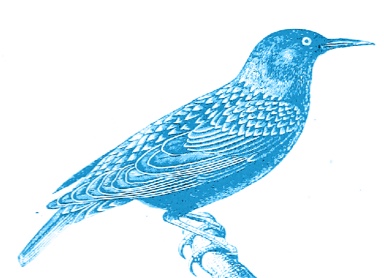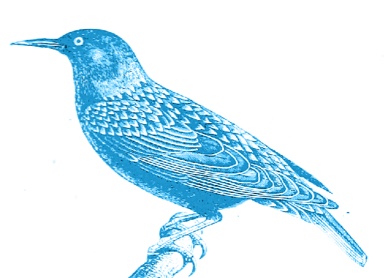On International Women’s Day – March 8, 2011 – women flocked to TheMotherhood to discuss one of the most important and least recognized issues affecting women’s health globally: cancer.
As one of the Talk hosts, Rennie Sloan, Director of Global Health Communications for the American Cancer Society, noted: “Funds for global health are not balanced. Even though cancer, heart disease and diabetes account for more than 60% of global deaths, they receive less than 3% of funding. Our U.S. Govt. and the UN leaders need to hear that cancer should be a global priority.”
Representatives from the American Cancer Society were on hand during the Talk to lead the discussion and provide their insights, while women shared their own stories and offered words of encouragement and support.
Cancer touches all of us
Cancer kills more than 3 million women globally each year. And even if cancer isn’t “in your face” every single day, it is still part of your life.
As co-host Joanne Bamberger said, “When I was first invited to join in, I thought, ‘Well cancer isn’t really a part of my life.’ But, of course, it is — I had a cervical cancer scare in law school, family histories of breast, uterine, colon cancer, and my best friend lost her battle with breast cancer two years ago. So important to remember that even when it’s not staring us in the face on any given day, it is still there.”
You don’t have to go through it alone
“I am a single mom to a tween boy and was diagnosed with cancer last year,” said participant Ma21cuteboy. “It is something that I find comfort in talking about and hope that in talking about it more women will be aware that they can also get cancer – to get tested, watch for signs and don’t be afraid to ask questions!”
Added participant Laurie, “Cancer touched my life 2 1/2 years ago when I was diagnosed with Ovarian Cancer. I am doing great now. I belong to a great support group of Ovarian Cancer survivors, LTIO, Let’s Talk It Ovar, and these women are strong, supportive and truly my mentors and kindred spirits. We celebrate our lives each and every day. To all who are suffering either as a survivor or a loved one of a survivor or one who has passed, talk about it, support each other, form a group. It is so very healing. God bless you all.”
Kristen Sullivan, Director of Medical and Scientific Communication for the American Cancer Society, noted that for others looking for support groups, “the American Cancer Society offers an online community of support called the Cancer Survivors Network.” You can check it out at www.cancer.org/csn
A number of participants also mentioned Susan Niebur, an inspirational mother of two young boys who is battling cancer and blogs about the process at Toddler Planet, http://toddlerplanet.wordpress.com/, and Mothers with Cancer, http://motherswithcancer.wordpress.com/
Practice prevention, screening and detection
There are ways that you can strive to prevent cancer in your own life, and when that isn’t possible, to screen for cancer and detect it in its early stages when it’s more treatable.
Ann McMikel, Strategic Director of Planning and Operations for the American Cancer Society, said, “A third of cancer can be treated through healthy diet, exercise and avoiding tobacco. Prevention is key to advancing the global fight against this disease that is taking our mothers, daughters and loved ones away. ”
Co-host Julie Pippert suggested “CHOOSE YOU!” and provided a link to the site, http://www.chooseyou.com/
The Choose You commitments Julie listed:
Eat right
Get active
Health checks
Protect my skin
Don’t smoke
“There are some cancers that we can actually stop before they even start, such as colon cancer and cervical cancer, by getting recommended screenings,” said Jesica D’Avanza, Director of Strategic Communications Planning for the American Cancer Society. “For many other cancers, all of the healthy behaviors that Julie Pippert mentioned can help you reduce your cancer risk. As others have already mentioned on this chat, nearly half of all cancer deaths could be prevented completely by doing these things that we know work. That is a pretty powerful statistic.”
The American Cancer Society provides a lot of information and detail on when we should all get certain cancer screenings based on age, gender and other factors: http://www.cancer.org/Healthy/FindCancerEarly/CancerScreeningGuidelines/index
And if you feel like something is wrong, “I would definitely go with your gut,” said participant Elebelly&mommy. “So many doctors will just dismiss it and move on to the next patient. I was expecting to have my doctor send me for a mammogram after I mentioned family history but I guess she didn’t feel it necessary … We have to be our own advocates and be persistent.”
Don’t dismiss alternative treatments
When faced with cancer, remember that chemo, radiation and traditional medicine don’t need to be your only treatments if you want to try other things. Our conversation revealed that alternative medicine had dramatic results in certain cases.
“My dad was given 6 weeks and he got 10 years due to VERY radical lifestyle changes, working a lot with eastern medicine and not once believing that it wouldn’t work,” said participant Holland.
Ariella@Sanborn agreed, “I think the mind/body connection is even more powerful than we think. I have had a number of my mother’s friends who have been diagnosed–given VERY short timelines–and then with radical lifestyle changes, have added literally YEARS to their lives, and in one case, a remission.”
Don’t stop talking about the loved ones you lose
When a loved one loses the battle with cancer, don’t let that person slip away from your day-to-day life.
“I remember a dear friend saying to me after my mother-in-law passed away that an especially hard part about losing someone you love is that people stop talking about them,” said Emily McKhann, TheMotherhood. “With that in mind, we make a point of talking about Goldie to our girls, for ourselves and for them so they grow up feeling like they know something of her.”
“I think this is so important,” agreed participant Erin L. “After my friend died in high school, I made it a point to write her mother every year on her birthday, anniversary of her death and Christmas to ensure she knew that her daughter was remembered.”
Julie Pippert pointed out that many people avoid talking about loved ones they have lost for the same reason she used to, “because it choked me every time.” She added, “I heard recently about how grief shifts from sorrow at loss to feeling blessed to have known and had someone amazing in your life. I think I am shifting.”
Learn about cancer in other countries
Not every country is as enlightened as the United States is now when it comes to cancer, particularly female cancers like breast cancer and ovarian cancer.
“The pink ribbon and breast cancer awareness is a global phenomenon,” said host Ann McMikel. “These efforts are helping to raise awareness [for cancer]; however, much more needs to be done in the developing world so that women have access to the early detection and treatment that is saving lives here in the U.S.”
Participants noted that they were “pinked out” by the prevalence of the pink breast cancer awareness ribbon, but co-host Morra pointed out that we need to be grateful: “Imagine that 40 years ago, women could not say publicly they had breast cancer.”
Joanne Bamberger agreed. “Women just a few generations back couldn’t even talk about what they often called ‘women problems.’”
This is still the case in many developing countries, unfortunately, where cancer is viewed as a stigma.
“One cervical cancer survivor we know in South Africa was alienated by her family, and her husband left her when she said she had cancer,” said host Rennie Sloan.
Why?
According to Rennie, “It’s simply because in many countries, they are where the U.S. was many decades ago in terms of understanding that cancer is a major issue. There aren’t many well-known survivors speaking out … In many cases, other governments don’t know it’s a problem, their health care systems are not equipped, and doctors are more tuned in to infectious diseases.”
Continue to help
The primary thing you can do to help the global fight against cancer is RAISE AWARENESS.
In the words of Rennie Sloan, ACS:
“Globally, the cancer burden is rising dramatically. Tobacco companies are spending BILLIONS targeting women in other countries, which will cause chronic disease to rise drastically.
“In China, 65% of male physicians smoke, and many women are exposed to deadly secondhand smoke. Getting our government to include cancer – which is currently omitted entirely in its Global Health Agenda – will make a huge difference in funding and to pave the way for the UN to include cancer in its global agenda.
“Many foundations and private companies make monetary donations based on these two things – the U.S. government’s global health priorities and the UN Millennium Goals. Tragically, these two important agendas omit cancer, one of the world’s leading killers, according to the World Health Organization.
“HIV/AIDS received a TREMENDOUS boost in resources and awareness campaigns after a major UN Meeting on AIDS. There is a similar UN Meeting this fall on noncommunicable diseases. This will START the process of getting more awareness. But our government and UN leaders need to understand the depth of the issue.
“Cancer is a leading cause of death in the world, yet it’s not on UN and global health agendas. In fact, it gets less than 3% of the global funding.”
Tweet your support for global cancer awareness and funds. Some tweets you can
Tweet: “Tell #UNWOMEN to put #cancer on its agenda”
Tweet: “Tell the #USgovt to put #cancer on its #globalhealth agenda. Cancer kills more than 3 million women globally each year.
Thank you to the amazing hosts of today’s meaningful Talk, from the American Cancer Society:
Ann M. McMikel, Strategic Director, Planning and Operations
Jesica D’Avanza, Director, Strategic Communications Planning
Rennie Sloan, Director, Global Health Communications
Kristen Sullivan, Director, Medical and Scientific Communication
And the wonderful co-hosts:
Morra Aarons-Mele, Women Online
Joanne Bamberger, Pundit Mom
Sarah Braesch, Sarah and the Goon Squad
Leanne Chase, Career Life Connection
Jennifer James, The Mom Salon
Catherine Morgan, catherine-morgan
Julie Pippert, Using My Words
Renee Ross, Cutie Booty Cakes
Chrysula Winegar, Work.Life.Balance
See the original Talk here: http://tmotherhood.wpengine.com/talk/show/id/62174


Take a Comment. Leave a Comment.
Read More ...
Influencer Marketing Resources: June 2025
Influencer Marketing Resources: May 2025
Influencer Marketing Resources: April 2025